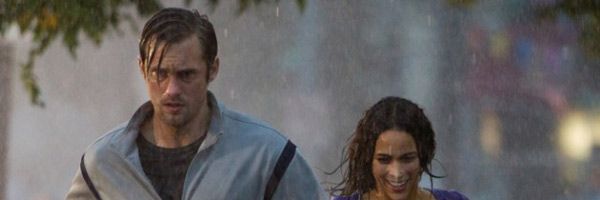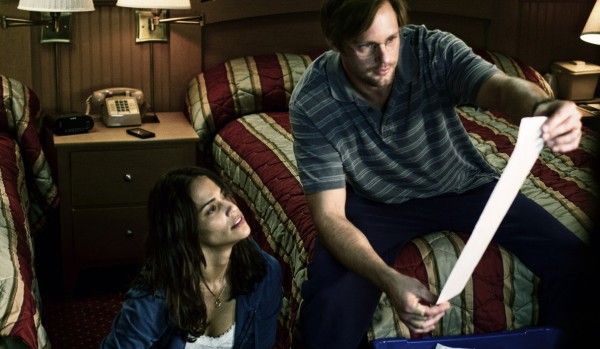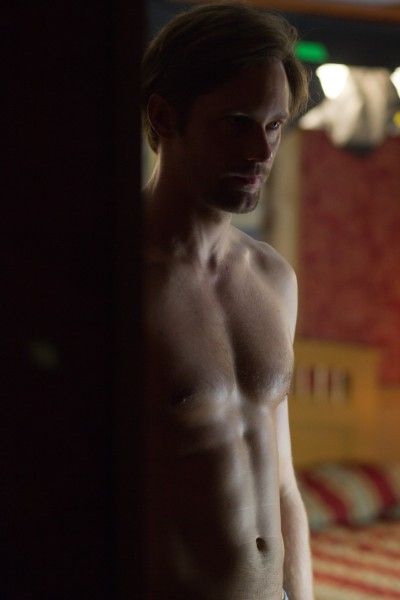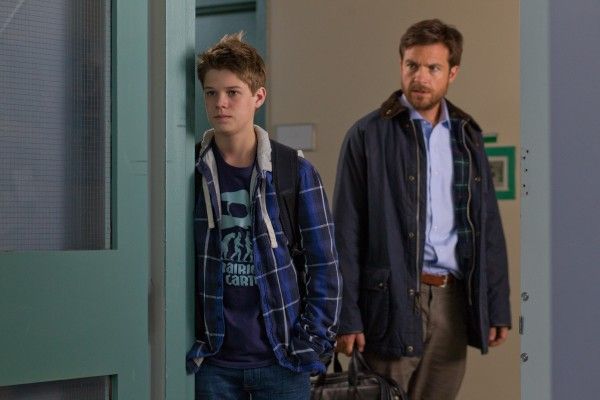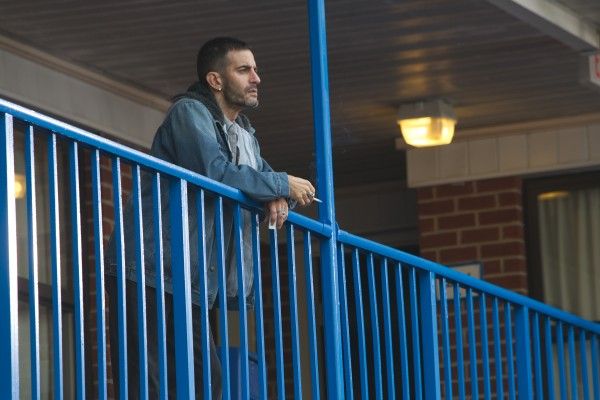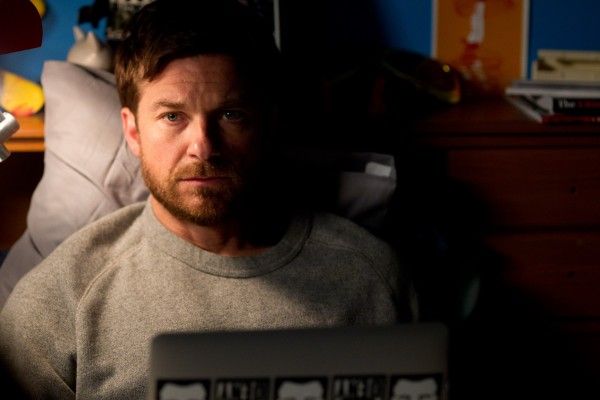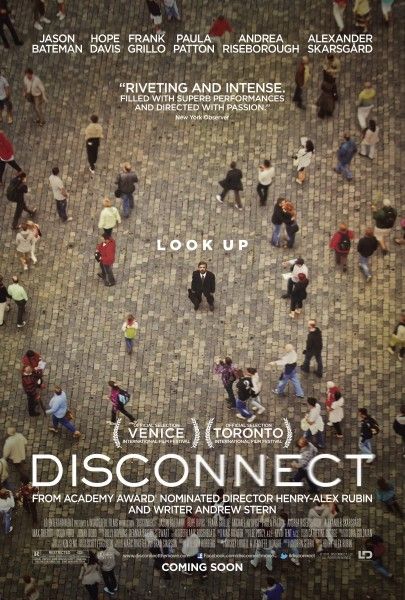The dramatic thriller Disconnect shows how ordinary people struggle to find personal connection in today’s world where modern technology is so readily available, and it can both unite and divide us. While the stories of strangers, neighbors and colleagues collide, the technology that we so often rely upon proves that it can result in unforeseen consequences for those around us. From first-time narrative feature director Henry-Alex Rubin, the film stars Jason Bateman, Hope Davis, Frank Grillo, Michael Nyqvist, Paula Patton, Andrea Riseborough, Alexander Skarsgard and Max Thieriot.
At the film’s press day, Collider spoke with actor Alexander Skarsgard at both a press conference and a 1-on-1 interview, in which he talked about what attracted him to Disconnect, how he got into the headspace for the character, the scene he was most concerned about shooting, his own experience in the Navy in Sweden, and how often he disconnects from technology himself. He also talked about the kinds of roles he looks for, how he feels about being on the hit HBO series True Blood for six seasons now, and whether he’s officially signed on for Tarzan (which was recently halted by Warner Bros.), as the title character. Check out what he had to say after the jump.
Question: How did you come to this project? Did you audition for this role, or did you just meet with the director, Henry-Alex Rubin?
ALEXANDER SKARSGARD: I was in New York, shooting What Maisie Knew. My agent sent me the script and I just loved it. I thought it was brilliant. I thought it was so intelligent, well-written, relevant and an important story to tell, and a really, really great character that was something very different from what I’d done before and what I was currently working on. Lincoln in What Maisie Knew is a very different type of guy than Derek. So, it just felt like something new and fresh and interesting. I called my agent and said, “I’d love to meet with the director,” and 30 second later he was in my lobby because Henry literally lives next door to the hotel I was in.
So, he came over and we just sat and talked for hours about Derek and the relationship between Derek and Cindy (Paula Patton). I was already a fan because I had seen Murderball and thought it was brilliant, but even if you’re a great documentary filmmaker, it doesn’t necessarily mean that you’re a great narrative filmmaker. There are fantastic documentary filmmakers that can’t direct actors. You don’t have to do that in a documentary, if it’s a real documentary. But, it was just a gut feeling. I just felt that Henry was so intelligent and so sensitive. He knew these characters and cared so much about the story that I just felt like, “I’m in good hands here. This is definitely a guy I want to work with.”
We talked a lot about it not being melodramatic or didactic. It’s not an anti-internet film. That’s not the story we’re telling. We’re telling a story about couples and people who are disconnected, for different reasons. The reasons Derek and Cindy aren’t happy have nothing to do with the internet. They’ve lost a lot. He came back from the war and he’s dealing with PTSD and he’s stuck in a job that he hates. He is emasculated. He was a war hero, but now it’s like, “What am I now?” That’s why it felt so important to me and so personal. I know a lot of guys that served overseas, and I know how difficult it is and how little help they get when they come back. I don’t know what’s going to happen to Cindy and Derek, but at least there’s some light there and some hope that they can find each other again. But, they are going to use the internet, and that’s not a bad thing.
How did you get into the headspace for this character?
SKARSGARD: For Derek, I saw the internet theft almost as a blessing in disguise. Up until that point, he has no control. He’s conflicted. He was a warrior and a hero, and now he’s a paper-pushing grunt. There’s so much guilt there and so much pride. He doesn’t want to talk to anyone about it. He can’t do that. So, the moment of taking control is when this horrible thing happens. Not that they have a lot, but they get the money they have, stolen from them. That’s when he comes back. That’s the moment where he takes control again. He’s suddenly a marine again, on a mission. There’s a spark there. Something happens that Cindy can see, in his eyes. For the first time, in a long time, he’s actually alive.
Does it help, when you’re doing material that’s this dark and intense, that you like your scene partner?
SKARSGARD: That was very important. Even in the first meeting I had with Henry, we talked a lot about it, and Paula wasn’t even cast yet. It was important to feel the love between Derek and Cindy. Even though they’re so disconnected from each other and they’re so miserable together, you have to root for them. You have to feel that there is, deep down, so much love between them, so that when they go on this road trip, you want the audience to be like, “Yeah, they’re finally looking at each other. They’re finally touching each other. This could work out.” Otherwise, what’s the point. You want to feel that there was something lost, not that it’s never been there.
Which scene were you most worried about shooting and pulling off?
SKARSGARD: My character is dealing with PTSD, and there’s a scene that was very pivotal, with [Paula and I] in the car, outside of Schumacher’s (Michael Nyqvist) house. They’re clearly not connecting, up until this point, but when they’re on this road trip, something happens. Derek, for the first time in almost a decade, he’s doing recon. He’s on a mission. He’s finally doing something. He’s not a paper-pushing grunt anymore. And something beautiful happens in that scene when Cindy sees that. Derek talks about an incident back in Iraq and Cindy just looks at him because he’s talking about it. What I loved about the scene was that it really had no point. It’s not a good story. There was no punchline. It was just this moment in time, when he was out there with his boys, doing absolutely nothing, and for some reason, he felt that, in this moment, with Cindy. There’s a moment where they, for the first time, really see each other. It could come across as an insignificant scene, but to me, it was one of the most important ones.
Did you do much improvisation on this film?
SKARSGARD: To Andrew Stern’s credit, who wrote the script, most of it is actually scripted. But, it’s very well-written, so it hopefully sounds very real and organic. That’s always what you want, isn’t it? You want it to feel improvised, like it’s just happening and they’re just saying what they’re feeling. So, most of it was scripted, but there were moments. Henry made us all feel very comfortable on set, and when you’re that comfortable, you allow yourself to take more risks and to be terrible in front of the camera. If you’re not comfortable, you’re going to play it safe. But, when you’re surrounded by someone like Henry and a great crew, and other actors that you feel comfortable with and are having a good time with, you take more risks, you’re crazier and you do something that doesn’t work at all, and then you just laugh and do something different. That’s also how you surprise yourself and find something new and fresh that’s unexpected.
Did your experience as a soldier help you understand this character?
SKARSGARD: Yeah. The script is extremely well-written and very intelligent and so relevant, on so many levels. The first time I read it, it felt very personal to me because of my own experience being in the Navy in Sweden. I also did a mini-series called Generation Kill that took place in Iraq, following a platoon of recon Marines, the first five weeks of the invasion. We shot that in Africa for about seven months, and I got to know a lot of the recon Marines when I was out there. So, when I read this, it just felt like Derek could have been one of those guys that was out there, and who came home and didn’t get the treatment and help that he deserved and needed. There is a lot of pride there. These are proud men and they’re warriors. They come home and feel like, “I’ve survived three wars. I’m not doing to go to a shrink and talk about my issues!” It’s a problem because they’re not getting that help. Derek does not open up, and he does not talk about it. That’s why it felt very personal, in a way. I know a lot of guys that are enlisted.
How do you handle your own experience?
SKARSGARD: The thing is that I was in a unit that is part of the Swedish Navy in Sweden. I did not come home with a lot of PTSD. We’re not fighting 16 wars. It was a very intense experience, but 200 years was the last time we were at war. I don’t carry that burden that Derek is carrying around.
Was it fun to finally get to see the final cut of this film, with all the different stories?
SKARSGARD: Yeah, it was so much fun! With Max and Andrea’s story, or Jason’s story, I could actually enjoy those. We shot the stuff with me and Paula first, so we were already wrapped before they even started the other storylines. I could actually just sit back and really enjoy watching those stories, which is very unusual when you’re in the film. I just think Henry did an amazing job. It’s incredible that he’s a first-time filmmaker. When you watch it, you can see how interwoven the three stories are and the pacing of it. He got inexperienced, young actors to be that good, and it’s not easy for a director to accomplish that.
Do you have any rules about technology at home, as far as when people can and can’t use it around you?
SKARSGARD: I’m a very lonely guy, so it’s just me. I wish I had someone I could tell to turn off their phone.
How much do you disconnect from what’s written about you on the internet? What do you do if you get a Google alert with your name?
SKARSGARD: I don’t get Google alerts. I stay away from my name. I don’t want to know. I’m not very active on social media. That’s an understatement. I’m not on Facebook or Twitter or Instagram, or anything like that. I think it’s wonderful that they’re out there. They’re fantastic. I have a lot of siblings and friends that use it, and it’s great for them. It’s such a connected world. When I’m on a plane, people know where I’m going before I even know where I’m going. People know where you had lunch yesterday, or who you had lunch with. So, trying to avoid sharing everything with everyone is my way of keeping something private in my life.
To actually turn off your phone when you go to your country house or you’re on vacation for a few days is important. I turn off my phone and just check it once a day. I turn it on and, if it’s an important message, I’ll call back. Otherwise, it can wait. I don’t worry about it with agents and managers because they’ll learn to accept it. If it’s important, they can leave a message and I’ll call back. Otherwise, I’ll call when I get back. For me, it’s really important to have that because life is crazy. You travel and you’re busy and there’s so much going on that it’s important to have those moments where you can breathe and you can just be present with the person or the people that you’re there with.
But, I don’t want it to sound negative or that I’m so like, “Oh, the internet is horrible!” It’s amazing! I have friends that are very active online and they’re saving the world. Kristin Bauer, a dear friend of mine, went to Africa to save elephants and she got all of her fans involved. It’s absolutely wonderful. You can use it in a way that’s actually really great. It doesn’t have to be about how amazing you are, or “Come watch my show!,” or “Look what I’m wearing today.” It doesn’t have to be narcissistic. To me, it’s not a didactic film about how horrible the internet it is, how evil it is or how it ruined our lives.
Actors who are on TV shows often talk about how they look for characters that are very different from their day job, that they can play on hiatus between seasons. Is it easy for you to find characters very different from Eric Northman?
SKARSGARD: You’d be surprised! I get a lot of scripts sent my way that are very similar, where they want me to play, basically, Eric Northman. Maybe without fangs, but it’s the same character. What’s the incentive? Why would I do that? If I just spent six months shooting a show, doing that, I want to do Lincoln in What Maisie Knew or Benji in The East or Derek in Disconnect – something that’s different. It hasn’t been about, “Oh, I’ve gotta show people that I’m versatile.” That’s not it. For me, creatively, I’d suffocate if I played the same thing, over and over again. I want those challenges. I want to sit down with a director and be like, “I’ve never done this before, but it’s going to be exciting. It’s scary, but really thrilling, so let’s do it!”
How has it been to do six seasons of True Blood now, and how do you feel about the journey this season?
SKARSGARD: We’re shooting right now. We’re half-way through the season. I go to set in a couple of hours, and I worked last night, as well. I think the writers are so good on the show and they keep it interesting for us, as actors, hopefully as well as for the audience. But, it doesn’t feel redundant. I don’t feel like we’re doing the same thing, over and over again. Every season is unique and I get to try new things. They put Eric in situations and with characters that are new and interesting. I keep learning new things about him, and I feel that he keeps on growing, as a character. The day that I don’t feel that any longer is the day to move on, but it’s still fun.
Have you officially signed on to do Tarzan?
SKARSGARD: It’s not officially greenlit yet, as far as I know. It’s a very big project, so they’re figuring out the budget, and all that.
Disconnect opens in theaters on April 12th.

